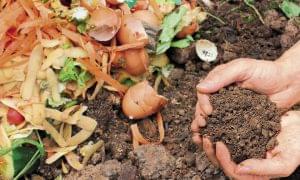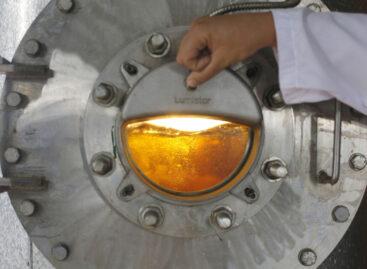It is decided on local level what to do with energy retrieved from food waste
According to FAO, 1.6 billion tonnes of food land in waste every year, which largely contributes to environmental and socio-economic problems. Poor management of food waste results in polluted natural resources, impaired human health and shortage of food. Furthermore, methane gas emitted from landfills causes enormous environmental impact, let alone the missed opportunity to transform waste into valuable energy.
Food waste represents a complex problem
Environmental harms due to food production and consumption may be efficiently mitigated by reducing food waste to the minimum. Relevant measures may include the implementation of regulations or voluntary initiations aimed to redirect food reallocation in a way that customer habits can be influenced. We must, however, be aware that a part of food waste is inevitable, but worth being recycled at a proper recycling facility.

One of the Sustainable Development Goals of UN is to reduce per capita food waste on retail and consumer level by 50 per cent by 2030
Ways to manage food waste
World Biogas Association proposes multiple alternatives to reduce the impact of food waste on the environment.
As regards selectively collected food waste, the spotlight is on anaerobic digestion that is a natural process through which biogas is produced. Anaerobic digestion may also be applied to degrade agricultural waste, i.e. dung, and different types of muds. Through anaerobic digestion 60% more energy may be retrieved from food waste than by any other technology.

Sustainable management of food waste may reduce the emission of greenhouse gases by up to 518 million tons
The second best way to recycle energy inherent in food waste is composting. In-vessel composting and aerated windrow composting are both appropriate to manage communal food waste, and actually, in-vessel composting is the most popular method of organic waste management across Europe.
World Biogas Association has formulated recommendations for settlements and local governments on how to reduce the environmental impact of food waste. These also rely on the fact that solid waste management is among the most important services local governments provide for communities, the volume of solid waste, however, increases at a larger pace than any other pollutant, incl. CO2.
Related news
FAO’s guide to International Potato Day helps you prepare for the first World Potato Day on May 30
While preparations are already underway for the first celebration of…
Read more >FAO Cereal Supply and Demand Brief
FAO’s forecast for world cereal production in 2023/24 has been raised marginally…
Read more >Our country supports Chad’s agriculture with seeds
It would help Chad’s agriculture and stability with an agricultural…
Read more >Related news
Twenty years in the EU: how has Hungarian consumption changed?
On 1 May 2004 ten new member states joined the…
Read more >Carefree consumers? Considerable differences in the middle-aged camp
Although inflation receded, the income of middle-aged people did not…
Read more >18+! Will cola be next after the energy drink?
According to the new regulations coming into force in Hungary,…
Read more >







